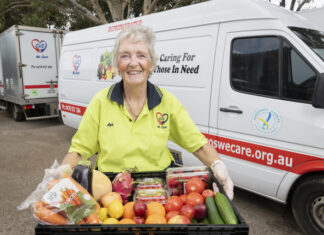Light’s response to GARP
IN response to the draft Greater Adelaide Regional Plan (GARP), Light Regional Council provided clear feedback to the State Government: we do not support further residential development encroaching upon the Environment and Food Production Areas (EFPA) at Roseworthy.
At the same time, council acknowledged that if Roseworthy were to be further developed, it should be done responsibly – with a better mix of housing types, higher density near future public transport routes, and close access to essential social infrastructure.
As a councillor, I have advocated for council to do more to address the chronic shortage of affordable housing in our region. This is not just a local issue – it is a state-wide challenge, with historically low vacancy rates and increasing levels of homelessness affecting communities across South Australia.
However, “printing land” through media releases and social media posts is not a genuine solution. Roseworthy currently lacks the fundamental infrastructure needed to support substantial growth: there is no reliable water supply, no sewerage system, limited or no social infrastructure such as schools and health services, and no public transport.
While announcements may sound reassuring to those rightly concerned about housing supply, they amount to little more than political posturing – especially on the eve of a federal election and in the lead-up to a state election where housing is front and centre.
The recent announcement of a “reserved” rail corridor for Roseworthy is welcome in principle, but without clarity on timelines or funding, it feels more like window dressing than a serious commitment.
Council acknowledges the legitimate concerns of primary producers in our region about what this could mean for the future of farming and food production.
We believe there are more balanced, thoughtful ways to contribute to South Australia’s housing needs – ways that preserve our agricultural land, respect our communities, and deliver real, lasting solutions.
As this planning process continues, we urge the State Government to genuinely listen to the voices of our primary producers, our community, and our council. Together, we can strike a better balance.
My views are my own.
Michael Phillips-Ryder
Mayor, Light Regional Council
Ashton calls for hospital commitment
As the excitement of Gather Round in the Barossa builds and with all eyes on our region, I’m also urging the government to focus on key issues for the region, particularly the Barossa Hospital.
Last week I spoke in Parliament once more about the importance of progressing a new Barossa Hospital.
As we prepare to welcome tens of thousands of people to the Barossa, I am hopeful that the government will also come with positive news that they have finally purchased the land for a new hospital.
More than $40 million has been injected into the Lyndoch Recreation Park re-development, and to get us ready for this weekend, and we need to see that same level of urgency from the Labor government towards a new hospital too.
Our Barossa community deserves the assurance that the $5 million put in the budget by the former Liberal government has been used to secure land.
Given the State Budget is just a couple of months away we’d expect to see some money put on the table to start building a hospital for the future of our region.
With the thousands of people moving into Concordia, it’s more important than ever that we see additional health services across our region.
Ashton Hurn
Member for Schubert
Ultimate in bad taste
Sacre bleu, call me old fashioned and a bit of a traditionalist, but I find that the choice of Russell Lowke as April’s guest speaker for the Gawler History Team, the ultimate in poor taste.
While recognising Mr Lowke as a Harvard graduate and with expertise as a software programmer and developer, in designing computer games, I believe many will hold the opinion that creating a game referencing the Assault on Gallipoli, be it partly disguised as a war history project, will consider it disrespectful and an insult to all those who gave their lives at Gallipoli and their families and relatives.
Richard Harris
Gawler









